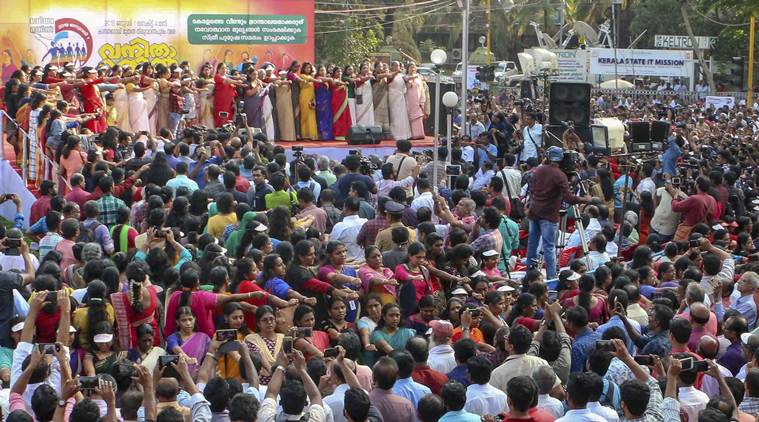The wall that women made
Why the Vanitha Mathil or Women’s Wall in Kerala was a powerful, stirring image of our time

One of patriarchy’s fundamental sleight of hand — its black magic, if you will — is to make women, their needs and desires, their anger and joys, invisible — even to themselves, and definitely to a larger collective. That lack of visibility is replicated everywhere in India — in public spaces and politics. To be heard, one has to be seen.
Did you see them? The lakhs and lakhs of women (5 million is the government estimate). Standing together across 620 kilometres to build not so much a wall, as a joyous, inspiring wave of assertion. The Vanitha Mathil (Women’s Wall), organised by the Left government in Kerala, a state which is grappling with tangled questions of faith and gender equality, was a powerful, stirring image of our time.
Women have erupted in public consciousness before — when pushed to the edge of disempowerment. The image of elderly Manipuri women, carrying a banner that said “Indian army rape us”, to protest the murder and rape of a young Manipuri girl was a searing rebuke to the Indian state’s record of violence in the state. In December 2012, waves of grieving women and girls occupied the streets of Delhi to demand accountability for the gangrape and death of an innocent — but also for their own battles against the epidemic of sexual violence.
Images of playfulness are rarer to find. One is reminded of the story of Kamaladevi Chattopadhyay (recounted in Ramachandra Guha’s Gandhi), who broke not just the oppressive salt laws but also Gandhi’s diktat that women not take part in the satyagraha that mobilised thousands (It was a “men’s fight” and it would be better if they mobilised themselves to ask for prohibition, he advised). Nevertheless, Chattopadhyay gleefully turned up at the Bombay Stock Exchange to sell the forbidden salt, whipped up an impromptu auction and was dubbed the “leading lawbreaker” by a Bombay newspaper.







































No hay comentarios:
Publicar un comentario